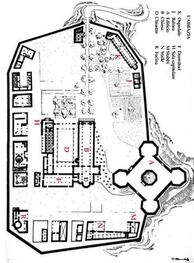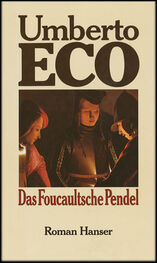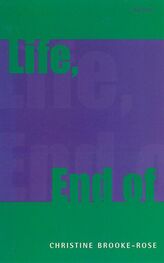In no time the place was a brazier, a burning bush. The bookcases themselves also joined in this sacrifice and were beginning to crackle. I realized the whole labyrinth was nothing but an immense sacrificial pyre, all prepared for the first spark.
“Water. We need water!” William was saying, but then he added, “But where can any water be found in this inferno?”
“In the kitchen, down in the kitchen!” I cried.
William looked at me, puzzled, his face flushed by that raging glow. “Yes, but by the time we’ve gone down and come back up … The Devil take it!” he then cried. “This room is lost, in any case, and perhaps the next one as well. Let’s go down at once. I’ll find water, and you rush out to give the alarm. We need a lot of people!”
We found the way toward the stairs: the conflagration lighted the subsequent rooms as well, but more and more faintly, so we crossed the last two almost groping again. Below, the moon dimly illuminated the scriptorium, and from there we went down to the refectory. William rushed into the kitchen; I to the refectory door, fumbling to open it from the inside. I succeeded after a fair amount of labor, for my agitation made me clumsy and inept. I stepped out onto the grass, ran toward the dormitory, then realized I could not wake the monks one by one. I had an inspiration: I went into the church, hunting for the access to the bell tower. When I found it, I grabbed all the ropes, ringing the alarm. I pulled hard, and the central bell rope, as it rose, drew me up with it. In the library the backs of my hands had been burned. My palms were still unhurt, but now I burned them, too, letting them slip along the ropes until they bled and I had to let go.
By then, however, I had made enough noise. I rushed outside in time to see the first monks coming from the dormitory, as I heard in the distance the voices of the servants, who were appearing at the doors of their lodgings. I could not explain myself clearly, because I was unable to formulate words, and the first that came to my lips were in my mother tongue. With bleeding hand I pointed to the windows of the south wing of the Aedificium, at whose alabaster panes there was an abnormal glow. I realized, from the intensity of the light, that the fire had spread to other rooms while I had come down and rung the bells. All the windows of Africa and the whole facade between it and the east tower now flickered with irregular flashes.
“Water! Fetch water!” I shouted.
At first no one understood. The monks were so used to considering the library a sacred and inaccessible place that they could not understand it was threatened by the sort of banal accident that might have befallen a peasant hut. The first who looked up at the windows blessed themselves, murmuring words of fear, and I realized they were thinking of further apparitions. I grabbed their clothing and begged them to understand, until someone finally translated my sobs into human words.
It was Nicholas of Morimondo, who said, “The library is on fire!”
“It is, indeed,” I whispered, sinking to the ground, exhausted.
Nicholas displayed great energy, shouted orders to the servants, gave advice to the monks surrounding him, sent some to open the other doors of the Aedificium, others to seek water and vessels of every kind. He directed those present toward the wells and the water tanks of the abbey. He ordered the cowherds to use the mules and asses to transport jars… If a man invested with authority had given these orders, he would have been obeyed at once. But the servants were accustomed to taking orders from Remigio, the scribes from Malachi, all of them from the abbot. And, alas, none of those three was present. The monks looked around for the abbot, to ask instructions and solace, and did not find him; only I knew that he was dead, or dying, at that moment, shut up in an airless passage that was now turning into an oven, a bull of Phalaris.
Nicholas shoved the cowherds in one direction, but some other monks, with the best of intentions, pushed them in another. Some of the brothers had obviously lost their heads, others were still dazed with sleep. I tried to explain, now that I had recovered the power of speech, but it must be remembered that I was almost naked, having thrown my habit on the flames, and the sight of a boy, as I was then, bleeding, his face smudged by soot, his body indecently hairless, numbed now by the cold, surely did not inspire much confidence.
Finally Nicholas managed to drag a few brothers and some other men into the kitchen, which in the meantime someone had opened. Another monk had the good sense to bring some torches. We found the place in great disorder, and I realized William must have turned it upside down, seeking water and vessels to carry it.
At that point I saw William himself appear from the door of the refectory, his face singed, his habit smoking. He was carrying a large pot in his hand, and I felt pity for him, pathetic allegory of helplessness. I realized that even if he had succeeded in carrying a pan of water to the second floor without spilling it, and even if he had done so more than once, he could have achieved very little. I recalled the story of Saint Augustine, when he saw a boy trying to scoop up the water of the sea with a spoon: the boy was an angel and did this to make fun of a saint who wanted to understand the mysteries of the divine nature. And, like the angel, William spoke to me, leaning in exhaustion against the doorjamb: “It is impossible, we will never do it, not even with all the monks of the abbey. The library is lost.” Unlike the angel, William wept.
I hugged him, as he tore a cloth from a table and tried to cover me. We stopped and, finally defeated, observed what was going on around us.
There was. a confused bustle, people going up the spiral staircase bare-handed and encountering others, bare-handed, who had been driven upstairs by their curiosity and were now coming down to look for vessels. Others, cleverer, had immediately started hunting for pans and basins, only to realize there was not sufficient water in the kitchen. Suddenly the great room was invaded by mules, bearing huge jars, and the cowherds driving the animals unloaded them and started to carry up the water. But they did not know how to climb to the scriptorium, and it was a while before some of the scribes told them, and when they went up they bumped into other* rushing down, terrified. jars broke and the water spread over the ground, though other jars were passed up the stairs by willing hands. I followed the group and found myself in the scriptorium. Thick smoke came from the access to the library; the last men who had tried to go up to the east tower were already coming down, coughing, red-eyed, and they announced it was no longer possible to penetrate that hell.
Then I saw Benno. His face distorted, he was coming up from the lower floor with an enormous vessel. He heard what those coming down were saying and he attacked them: “Hell will swallow you all, cowards!” He turned, as if seeking help, and saw me. “Adso,” he cried, “the library … the library …” He did not await my answer, but ran to the foot of the stairs and boldly plunged into the smoke. That was the last time I saw him.
I heard a creaking sound from above. Bits of stone mixed with mortar were falling from the ceiling of the scriptorium. The keystone of a vault, carved in the shape of a flower, came loose and almost landed on my head. The floor of the labyrinth was giving way.
I rushed downstairs and out into the open air. Some willing servants had brought ladders, with which they were trying to reach the windows of the upper floors, to take water up that way. But the highest ladders barely extended to the windows of the scriptorium, and those who had climbed up were unable to open them from the outside. They sent word down to have them opened from within, but at this point nobody dared try to go up there.
Читать дальше









